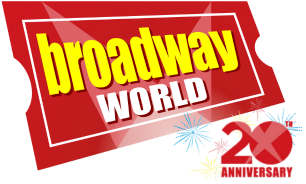BWW Reviews: The Foibles of DON GIOVANNI at Opera Philadelphia
DON GIOVANNI is a most peculiar opera. In an art form where one expects long arias explaining emotions and motivations, here Mozart gives us a somewhat comic - but is it really? - opera in which the titular character's motivations are never explained. Perhaps they're supposed to be obvious - "Don Juan" is a known description of a certain type of adventurer, after all - but what motivations one might ascribe to the original, Mozart failed to tell us.
The production that ran at Opera Philadelphia from April 25 through May 4 had its own additional mysteries. One was what director and set designer Nicholas Muni meant with his painting-set. Although otherwise a nice combination of minimal and period, which worked fairly well in and of itself, there was an inexplicable use of scrims that, when light hit them from the front, appeared to be famous or less famous paintings (an enlarged version of Saint George and the Dragon took prominence), and when lit from the rear became shadowy, framed scenes of the action behind them. The allusions weren't always clear. Nor was why the bands that are supposed to be on stage during the performance were only heard from the orchestra pit, nor why Don Ottavio's great aria was moved to the beginning of the second act. Another mystery was why Muni didn't realize that the corset sight gag was bound to get tired after the second or third time, and the greatest? Why Elliot Madore, whose voice seems softer than not, was cast as the relentlessly macho Giovanni. He cut a fine figure in his hard-rock leather that was oddly anachronistic against the period costumes and set - another mystery, this costume element - but didn't have the sound to accompany the image.
Despite that, great voices did abound - Don Ottavio was sung by David Portillo, who has a massively beautiful voice, one that deserves much larger parts, and Donna Elvira, sung by Amanda Majeski, was a revelation. A strange figure, Donna Elvira, but made human by Majeski's devastating rendition of her plight. Michelle Johnson as Donna Anna, alas, seemed peculiarly wasted or miscast - an Academy of Vocal Arts favorite, anyone who has heard her elsewhere knows she's capable of far more beautiful work, and the issue was not either her ability or Mozart's music; she may be a voice intended for Verdi or Puccini rather than for Mozartian delicacy. But she's a fine, fine actor, and conveyed Donna Anna's story beautifully through her emotion and movement.
While it's true that Leporello, Giovanni's servant, is intended to be a comic part, alas, Joseph Barron, under Muni's direction, pushed the comedy almost a bit too broadly, which was at its least effective when the comic physical business interfered with Barron's singing - an unfortunate move, to simply produce sight gags at the expense of talent.
That DON GIOVANNI is inherently sexist can't be avoided. It's the story, after all. And it was written when it was written, and Mozart was not influenced by Betty Friedan. So yes, Zerlina does beg Masetto to hit her, and yes, we can't help but cringe now. However, the addition of irrelevantly presented additional conquests by Giovanni (a nun? Really?) in a highly disposable fashion, though it makes a point, is still an unnecessarily sexist addition that should have been avoided.
And yet, for all its flaws, this was still a solid production. It's an opera that calls for acting talent as well as musical talent, and that was present in abundance on stage. Majeski and Portillo in particular made the production a joy to hear. And, barring the paintings (and a somewhat oddly raked stage), between set and costumes, this was a visually arresting version of the classic opera.
For additional information on upcoming events in the season, visit the Opera Philadelphia webpage at www.operaphila.org.
Videos


